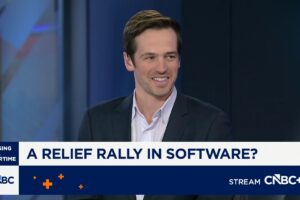
Your chances of getting screened for cancer depend a lot on whether you visit your doctor bright and early in the morning or later in the afternoon, a new study suggests.
During the 8 a.m. hour, primary care physicians ordered breast cancer screenings for 64% of the patients who were eligible for the tests. But at 5 p.m., those same doctors asked for the cancer tests for 48% of eligible patients, according to University of Pennsylvania researchers.
The same decline happened with colon cancer screenings — doctors ordered the tests for 37% of the 8 a.m. patients, but 23% of the 5 p.m. patients.
The drop-off in ordering screenings could be linked to “decision fatigue,” the mental burn-out that makes it harder for people to think through big decisions the farther they get into their day, said the study, published Friday in JAMA Network Open. The decline also could stem from doctors running behind on their appointments, the researchers acknowledged.
‘As the day goes on, clinicians may be less likely to discuss cancer screening with patients simply because they have already done this (and made other decisions) a number of times.’
“As the day goes on, clinicians may be less likely to discuss cancer screening with patients simply because they have already done this (and made other decisions) a number of times,” researchers wrote. Another possibility was that “patients who see their clinician later in the day want to leave sooner and decline a discussion about cancer screening,” researchers added.
In a grim twist, it seems the end of the day also affects patients. When doctors ordered fewer screenings later in the day, the people on the receiving end of those orders complete the cancer screenings at a lower rate.
There was sort of midday bright spot as doctors caught up during lunch. Though breast cancer screenings fell to 48.7% at 11 a.m., they climbed up to 56.2% at noon. But then the rates fell again.
The study is a sobering look at decision fatigue, a phenomenon studied in all sorts of contexts, including water polo players, video streaming tendencies and parole decisions that occur in the afternoon.
On the flip side, there’s long been plenty of talk about managing decision fatigue and “winning the morning to win the day” in order to maximize productivity.
Don’t Miss: How Artificial Intelligence could help with early detection of breast cancer
For example, Colin Powell, the decorated general and former Secretary of State, might have been getting at the significance of evaluating situations with fresh eyes at the day’s start with the first of his 13 rules on leadership: “It ain’t as bad as you think. It will look better in the morning.”
The University of Pennsylvania study is also a reminder that for all of modern medicine’s technological advances, there’s still a human element that doesn’t make the best care a guarantee.
For example, a previous study showed that patients admitted to hospitals around the holiday season had increased risks of death or readmission. One of the reasons was that many doctors themselves were out of town, celebrating the holidays.
Researchers at the university’s Perelman School of Medicine and the Wharton School sifted through two years of data from 33 primary care practices in New Jersey and Pennsylvania, with around 19,000 patients eligible for breast cancer screenings and 33,000 patients eligible for colorectal cancer screenings.
Almost 600,000 Americans died from cancer in 2016, according to the Centers for Disease Control and Prevention.
The stakes are high. Almost 600,000 Americans died from cancer in 2016, second to heart disease, which caused 635,260 deaths that year, according to the Centers for Disease Control and Prevention.
Past research by the same study team spotted waning flu vaccinations as the day went on, dropping from about 44% to 32%.
To fix the issue, “nudges” were tacked onto the system asking whether doctors wanted to accept or decline an order for a flu shot. Doctors who got the nudges prescribed flu shots at increased rates compared to doctors without the reminders.
“Our new study adds to the growing evidence that time of day and decision fatigue impacts patient care,” said Dr. Mitesh Patel, the director of the Penn Medicine Nudge Unit and an assistant professor of Medicine. “In past work, we’ve found that nudges in the electronic health record can be used to address these types of gaps in care, which we suspect will be the case here.”
Get a daily roundup of the top reads in personal finance delivered to your inbox. Subscribe to MarketWatch’s free Personal Finance Daily newsletter. Sign up here.











